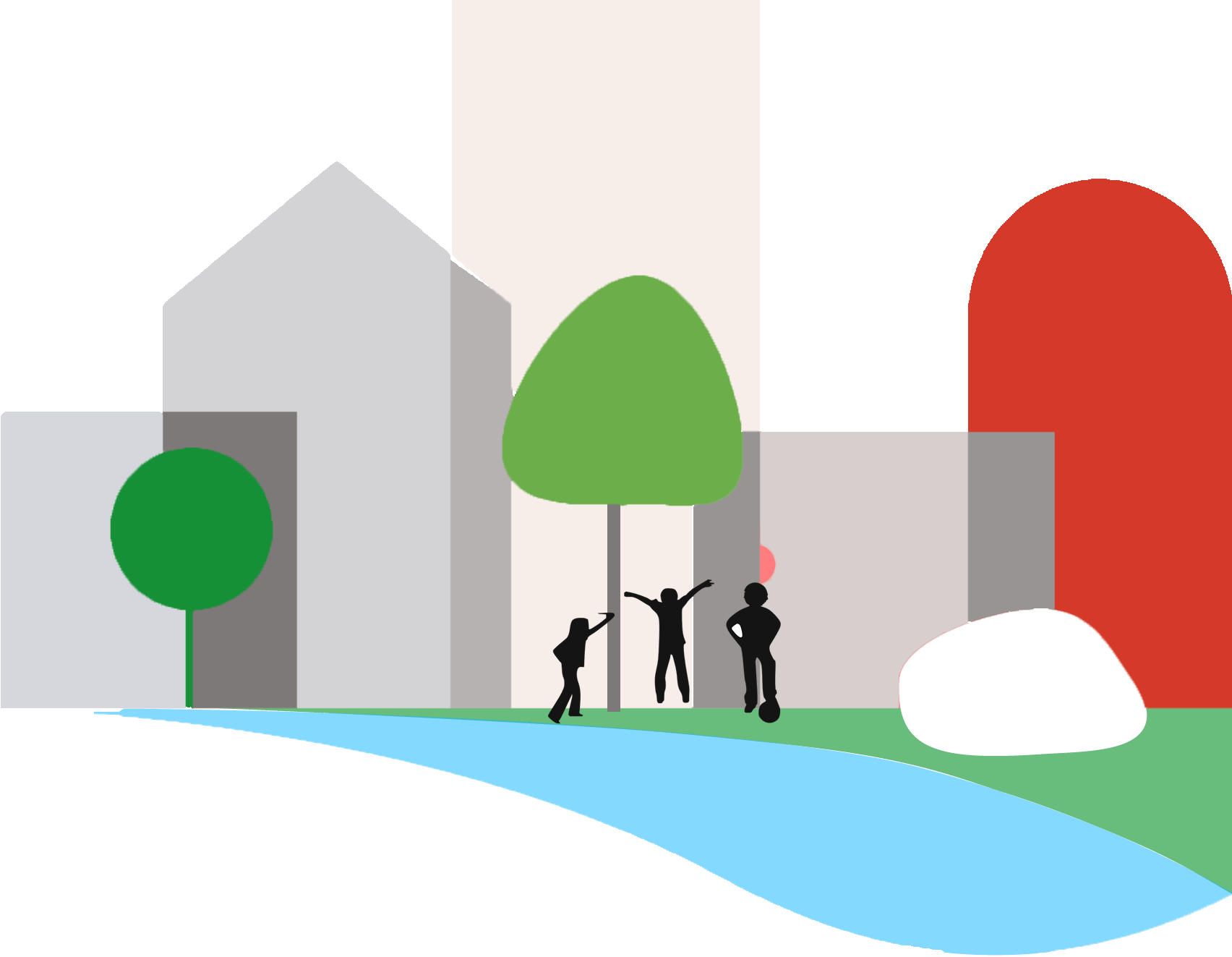
PROJECT PROFILE: The EMoGI Project
Emotional Mapping of Green Infrastructure in Disadvantaged Urban Places





About
This project investigates people’s perceptions and emotional attachments to green infrastructure (GI), focusing on disadvantaged urban neighborhoods and the experiences of residents typically underrepresented in GI research. A pilot study (2022-23) will primarily focus on the parks and open spaces in the City of Camden, NJ. We will address four research questions: (1) Do statistically significant relationships exist between emotions and GI in disadvantaged places? (2) How can we map GI-emotion relationships? Do GI-emotion relationships vary according to types of emotions and types/locations of GI? (3) Do GI-emotion relationships vary among different underrepresented groups? (4) How do GI-emotion relationships impact community mental health and wellbeing and how are they meaningful to public health officials, planners, and policymakers?
The team was awarded a $25,000 grant from Rowan University's Catalyst grant program.


Project Team
Mahbubur Meenar, Ph.D. (Principal Investigator, Rowan University)
Jennifer Kitson, Ph.D. (Co-Investigator, Rowan University)
Ashley York, Ph.D. (Co-Investigator, Rowan University)
Community Partners
Missy Frankil, Jade Lopez and Joe Myers (Camden Community Partnership, NJ)
Patricia Jones (The Arc of Atlantic County, NJ)
Dan Rhoton (HopeWorks in Camden, NJ)
Jonathan Wetstein (Parkside Business & Community in Partnership, NJ)
Research Collaborators
S. M. Labib, Ph.D. (Utrecht University, Nederlands)
Jirka Panek, Ph.D. (Palacký University, Czech Republic)
Leslie Spencer, Ph.D. (Rowan University)
Project Goals
-
Goal 1: Examine relationships between emotions and GI in disadvantaged urban places
-
Goal 2: Create emotional maps to understand the relationships between GI, emotions, and locations
-
Goal 3: Explore if/how the relationships vary among underrepresented vulnerable population groups:
-
Race (Black)
-
Ethnicity (Latinx)
-
Gender (Female)
-
Age (Older adults)
-
Disability (people with intellectual or physical disabilities)
-
-
Goal 4: Interpret if/how the relationships (i) impact community mental health and wellbeing and (iii) are meaningful to public health officials, planners, and policymakers








Methods/ Tools

Focus
Groups
Online
Hotspot
Analysis

Geo-statistical
Analysis

Content Analysis
& Coding

Geospatial
Mapping
Focus Groups — Pics

Focus group with Camden residents, Salvation Army Kroc Center — Nov 2022
Focus group with Persons with Disability (PwD) in Egg Harbor Township, Arc of Atlantic — Nov 2022

Focus group with Camden HopeWorks interns — March 2023

Focus group with Camden residents and stakeholders — March 2023
Relevant Publications
-
Meenar, M., Heckert, M., & Adlakha, D. (2022). “Green enough ain’t good enough:” Public perceptions and emotions related to green infrastructure in environmental justice communities. International Journal of Environmental Research and Public Health.,19(3), 1448.
-
Meenar, M. & Mandarano, L.. (2021). Using photovoice and emotional maps to understand transitional urban neighborhoods. Cities, 118 (Nov), 103353.
-
Mennis, J; Li, X; Meenar, M., Coatsworth, D., McKeon, T., & Mason, M. (2021). Residential greenspace and urban adolescent substance use: Exploring interactive effects with peer network health, sex, and executive function. International Journal of Environmental Research and Public Health, 18(4), 1611.
-
Tirri, C., Swanson, H., & Meenar, M. (2021). Finding the “heart” in the green: Conducting a bibliometric analysis to emphasize the need for connecting emotions with biophilic urban planning. International Journal of Environmental Research and Public Health, 18(18), 9435.
-
Meenar, M., Howell, J. P., Moulton, D., & Walsh, S. (2020). Green stormwater infrastructure planning in urban landscapes: Understanding context, appearance, meaning, and perception. Land, 9(12), 534.
-
Meenar, M. (2019). Integrating placemaking concepts into green stormwater infrastructure design in the City of Philadelphia. Environmental Practice, 21(1), 4-19.
-
Meenar, M., Flamm, B, & Keenan, K. (2019). Mapping the emotional experience of travel to understand cycle-transit user behavior. Sustainability, 11(17), 4743.
-
Christman, Z., Meenar, M., Mandarano, L., & Hearing, K. (2018). Prioritizing suitable locations for green stormwater infrastructure based on social factors in Philadelphia. Land, 7(4), 145.
-
Mandarano, L. & Meenar, M. (2017). Equitable distribution of green stormwater infrastructure: a capacity-based framework for implementation in disadvantaged communities. Local Environment, 22(11), 1338-1357.




















